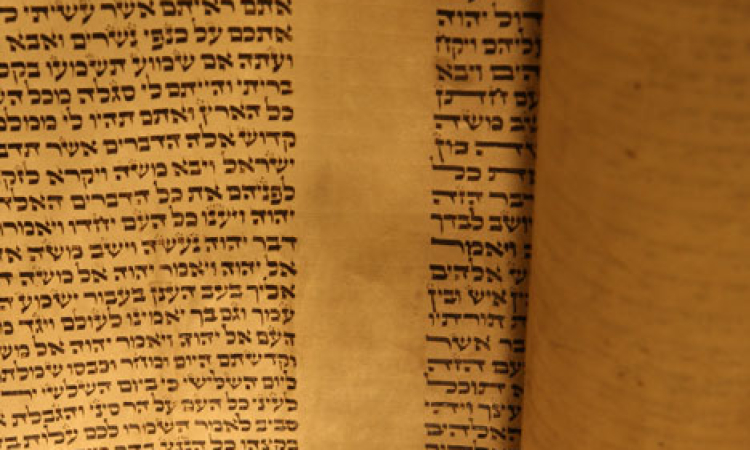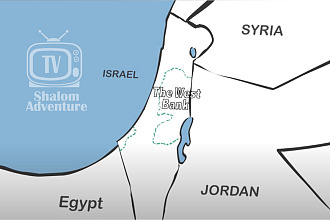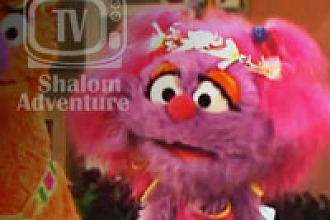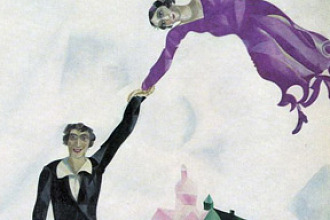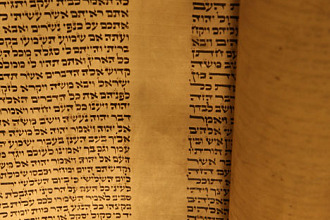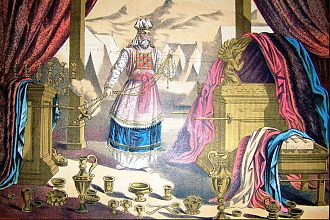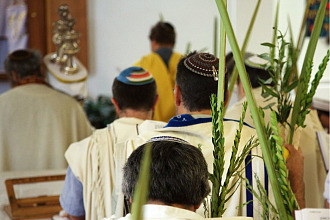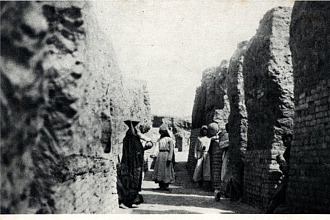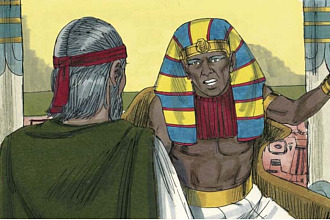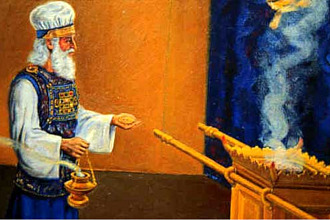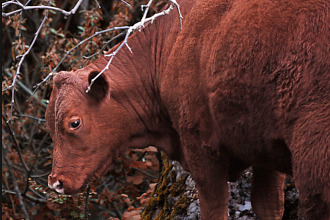<p><strong>Parasha for the Week: Vayechi: Genesis 47: 28 – 50:26</strong><br /><strong>Haftarah for the Week: 1 Kings 2:1 - 12</strong><br /><strong>Besorat Yeshua: Mark 13:32 – 14:9</strong></p>
<p><strong>Overview</strong><br />After 17 years in Egypt, Yaakov calls Yosef. He has Yosef swear to bury him in the Machpela Cave, the burial place of Avraham and Sara, Yitzchak and Rivka.<br />Yaakov falls ill and Yosef brings to him his two sons, Ephraim and Menashe. Yaakov elevates Ephraim and Menashe to the status of his own sons, thus giving Yosef a double portion that removes the status of firstborn from Reuven.<br />As Yaakov is blind from old age, Yosef leads his sons close to their grandfather.</p>
<hr id="system-readmore" />
<p>Yaakov begins to bless them, giving precedence to Ephraim, the younger, but Yosef interrupts him and indicates that Menashe is the elder. Yaakov explains that he intends to bless Ephraim with his strong.<br />Yaakov summons the rest of his sons to bless them. Yaakov's blessing reflects the unique character and ability of each tribe, directing each one in its unique mission in serving G-d.<br />Yaakov dies at age 147. A tremendous procession accompanies his funeral cortege up from Egypt to his resting place in the Cave of Machpela in Hebron.<br />After Yaakov's passing, the brothers are concerned that Yosef will now take revenge on them. Yosef reassures them, even promising to support them and their families.<br />Yosef lives out the rest of his years in Egypt, seeing Ephraim's great-grandchildren. Before his death, Yosef foretells to his brothers that G-d will redeem them from Egypt.<br />He makes them swear to bring his bones out of Egypt with them at that time.<br />Yosef passes away at the age of 110 and is embalmed.<br />Thus ends Sefer Bereshit, the first of the five Books of the Torah.</p>
<p><strong>"Watch Your Body Language"</strong><br />Before Jacob died he blessed and admonished his sons. He rebuked Shimon and Levy for destroying the city of Shechem in response to the violation of their sister, Dina, by Hamor, the son of the leader of Shechem. The Torah brings Jacob's words, "...for in their anger (b'apom) they slew men" (Genesis 49:6). What lesson for our lives can we learn from Jacob's words?<br />Rabbi Chaim Mordechai Katz, the Rosh HaYeshiva of Telshe Yeshiva, says, "Although not the literal meaning of the verse, the thought has been expressed that besides meaning "in their anger," b'apom (the Hebrew word for "in their anger") can also be defined as "with their nose." quite often, by just turning up one's nose, one can greatly harm another person. If that person is present, he will feel belittled and humiliated. Even when someone is not present, turning up one's nose at the mention of this name implies derogatory attributes and can cause someone to lose a job or marriage prospect." Besides watching our words, we must also be careful to watch our body language!</p>
<p><strong>"Unity Among Us"</strong><br />Before Jacob's death, the Torah tells us, "And Ya'akov (Jacob) called to his sons, and he said, 'Gather together and I will tell you what will befall you in the end of days'" when the Jewish people will be redeemed from exile (Genesis 49:1).<br />What did Ya'akov mean when he used the phrase "Gather together"? When Ya'akov told his sons to gather together he meant that they should have unity amongst themselves. Only when there is unity among the descendants of Ya'akov can there be redemption. If there is not yet unity, it is not yet time for redemption.<br />With this we can understand what Yosef's brothers meant when they said to him later on (Genesis 50:16-17) that before Ya'akov's death he requested that Yosef forgive them. No where in the Torah is it recorded that Ya'akov asked Yosef to forgive his brothers. However, the commentary of the Shaloh tells us that the answer can be seen in our verse where Ya'akov asks the brothers to "Gather together". Ya'akov was asking all of them, including Yosef, for unity and the deep love that comes from unity. Where there is love, there is forgiveness.<br />This is a crucial issue for our time. People are very different from one another in many ways. However, if all the descendants of Ya'akov realize how important it is to have unity, this unity will bring about a love that transcends the specific complaints one person has against another.</p>
<p><strong>"Kindness"</strong><br />The Torah states: "And the days of Israel (Jacob) drew near to die; and he called his son Joseph, and said to him: ...deal with me kindly and truly; bury me not in Egypt." (Genesis 47:29)<br />Rashi enlightens us as to the meaning of "kindly and truly." Kindness which is shown to the dead is true kindness, for one who does chesed (kindness) for a dead person certainly does not look forward to any payment. When someone does something for another person so that the person will in turn do him favors, the action cannot be considered true kindness. Rather, it is a form of bartering in which the merchandise is not objects, but favors.<br />When Rabbi Moshe of Kobrin was seven years old, there was a severe famine in Lithuania. Poor people wandered from village to village in search of food. Many of them flocked to the home of Rav Moshe's mother, who readily cooked and baked for them. Once a very large number of the poor came to her home and she had to cook for them in shifts. When some individuals grew impatient and insulted her, she began to cry, since she felt that she was doing her utmost for them. Her young son, the future Rabbi of Kobrin, said to her, "Why should their insults trouble you? Don't their insults help you perform the mitzvah with sincerity? If they had praised you, your merit would be less, since you might be doing the kindness to gain their praise, rather than to fulfill the Almighty's command."</p>
<p>In 1943, after more than three years of German control over France, the Great Synagogue of Lyon continued to function. That December 10, the Lyon Milice, the shock troops of the Vichy government, decided to put an end to the Jewish worship. The shul's rabbi survived the war to tell the tale, which is recorded in a book about Klaus Barbie, the infamous "Butcher of Lyon" by Brendan Murphy - Empire/Harper & Row, 1983. A member of the Milice quietly entered the rear of the sanctuary that Friday night during services. Armed with three hand grenades, he intended to lob them into the crowd of standing worshippers from behind, and to escape before the explosions. After silently opening the door and entering the room unnoticed by anyone but the rabbi (who stood facing the congregation), he pulled the pins. What he saw, though, so shook him that he remained wide-eyed and motionless for a crucial moment, and then only managed to toss the grenades a few feet before fleeing. Several worshippers were injured by shrapnel but none were killed. What had so flabbergasted the Nazi was the sudden, unexpected sight of his intended victims' faces, as the congregation, as if on cue, turned as one on its heels to face him. The would-be mass-murderer had entered the shul precisely at "bo'i b' shalom," the last stanza of the liturgical poem Lecha Dodi, when worshippers traditionally turn toward the door to welcome the Sabbath.</p>
<p><strong>HAFTARAH: 1 Kings 2:1 - 12</strong><br /><strong>Parasha:</strong> Yaakov is dying and gives his last in¬structions to Yosef and other sons: [Yaakov] blessed Joseph, and said, "The God before whom my ancestors Abraham and Isaac walked, the God who has been my shepherd all my life to this day, the angel who has redeemed me from all harm, bless the boys; and in them let my name be perpetuated, and the name of my ancestors Abraham and Isaac; and let them grow into a multitude on the earth." (Gen. 48:15-16)</p>
<p><strong>Haftarah:</strong> There is a parallel between Yaakov dying and King David dying and giving instruction to Sol¬omon his son: " When David's time to die drew near, he charged his son Solomon, saying: "I am about to go the way of all the earth. Be strong, be courageous, and keep the charge of the LORD your God, walking in his ways and keeping his statutes, his commandments, his ordinances, and his testimonies, as it is written in the law of Moses, so that you may prosper in all that you do and wherever you turn. Then the LORD will establish his word that he spoke concerning me: 'If your heirs take heed to their way, to walk before me in faithfulness with all their heart and with all their soul, there shall not fail you a successor on the throne of Israel...' Then David slept with his ancestors, and was buried in the city of David."</p>
<p><strong>Besorat Yeshua Mark 13:32 – 14:9</strong><br /><strong>Parasha:</strong> Yaakov is dying. "Now the eyes of Israel were dim with age, and he could not see well. So Joseph brought them near him; and he kissed them and embraced them." (Gen. 48:10).</p>
<p><strong>Besorah:</strong> In the parasha Yaakov, just before dying gave some prophecy about the future of God's people through his sons, Yeshua does the same, he will die very soon, and gave a prophecy for the future of his people: "It is like a man going on a journey, when he leaves home and puts his slaves in charge, each with his work, and commands the doorkeeper to be on the watch. Therefore, keep awake—for you do not know when the master of the house will come, in the evening, or at midnight, or at cockcrow, or at dawn, or else he may find you asleep when he comes suddenly. And what I say to you I say to all: Keep awake."</p>
<p>In the parasha Yosef demonstrated kindness to his brothers even after the death of his father, there is a woman in the text of the Besorah who demonstrated kindness to Yeshua before he dies, her name was Myriam. "...as he sat at the table, a woman came with an alabaster jar of very costly ointment of nard, and she broke open the jar and poured the ointment on his head. ...Y'shua said, "She has performed a good service for me. For you always have the poor with you, and you can show kindness to them whenever you wish; but you will not always have me.</p>
<p> </p>

